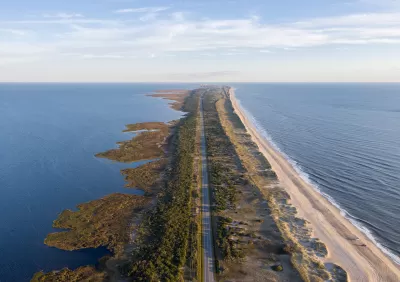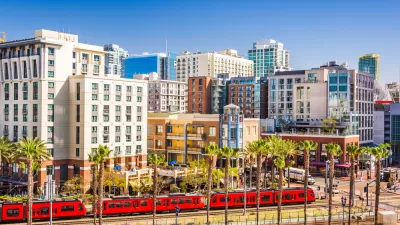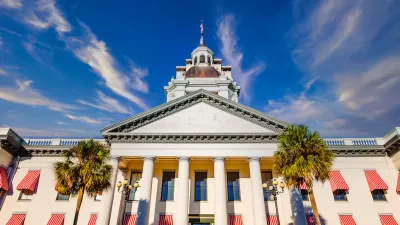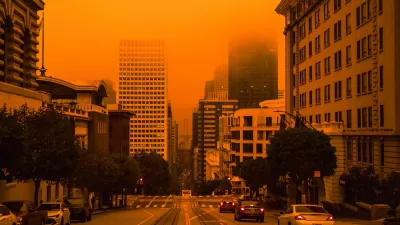Cities in the South are facing a multitude of climate change impacts, but many have been slow to respond to the growing threats.

James Bruggers writes about a collaborative effort between InsideClimate News and newsrooms in seven Southeastern states called Caught Off Guard, a series which looks at climate change and the challenges this part of the country is facing. "The region lags behind others in renewable electricity and faces some of the biggest global warming threats in the nation."
Charleston, South Carolina, for example, is preparing for the effects of climate change, but decreasing emissions has not been a priority. "Charleston Mayor John Tecklenburg two years ago pledged to cut his city’s carbon dioxide emissions 80 percent by 2050. But the city government has no solar panels on its buildings, no city vehicles that run on electric power or cleaner fuels, and it still hasn’t pushed its electric utility, Dominion Energy, to supply more renewable electricity," says Bruggers.
Bruggers describes the varying commitments different cities have made to address climate change. Some cities, however, have been hampered by utility companies affiliated with the coal industry or state legislatures not willing to cooperate.
In other cases, cities have resisted taking any action at all, notes Bruggers. "In Savannah, Georgia, no one was routinely counting greenhouse gas emissions from the nation’s fourth busiest seaport. The Port of Savannah has no emission reduction goals because, officials said, it is not required."
FULL STORY: Caught Off Guard: South struggles with climate change

Alabama: Trump Terminates Settlements for Black Communities Harmed By Raw Sewage
Trump deemed the landmark civil rights agreement “illegal DEI and environmental justice policy.”

Study: Maui’s Plan to Convert Vacation Rentals to Long-Term Housing Could Cause Nearly $1 Billion Economic Loss
The plan would reduce visitor accommodation by 25% resulting in 1,900 jobs lost.

Planetizen Federal Action Tracker
A weekly monitor of how Trump’s orders and actions are impacting planners and planning in America.

Waymo Gets Permission to Map SF’s Market Street
If allowed to operate on the traffic-restricted street, Waymo’s autonomous taxis would have a leg up over ride-hailing competitors — and counter the city’s efforts to grow bike and pedestrian on the thoroughfare.

Parklet Symposium Highlights the Success of Shared Spaces
Parklets got a boost during the Covid-19 pandemic, when the concept was translated to outdoor dining programs that offered restaurants a lifeline during the shutdown.

Federal Homelessness Agency Places Entire Staff on Leave
The U.S. Interagency Council on Homelessness is the only federal agency dedicated to preventing and ending homelessness.
Urban Design for Planners 1: Software Tools
This six-course series explores essential urban design concepts using open source software and equips planners with the tools they need to participate fully in the urban design process.
Planning for Universal Design
Learn the tools for implementing Universal Design in planning regulations.
Caltrans
Smith Gee Studio
Institute for Housing and Urban Development Studies (IHS)
City of Grandview
Harvard GSD Executive Education
Toledo-Lucas County Plan Commissions
Salt Lake City
NYU Wagner Graduate School of Public Service





























